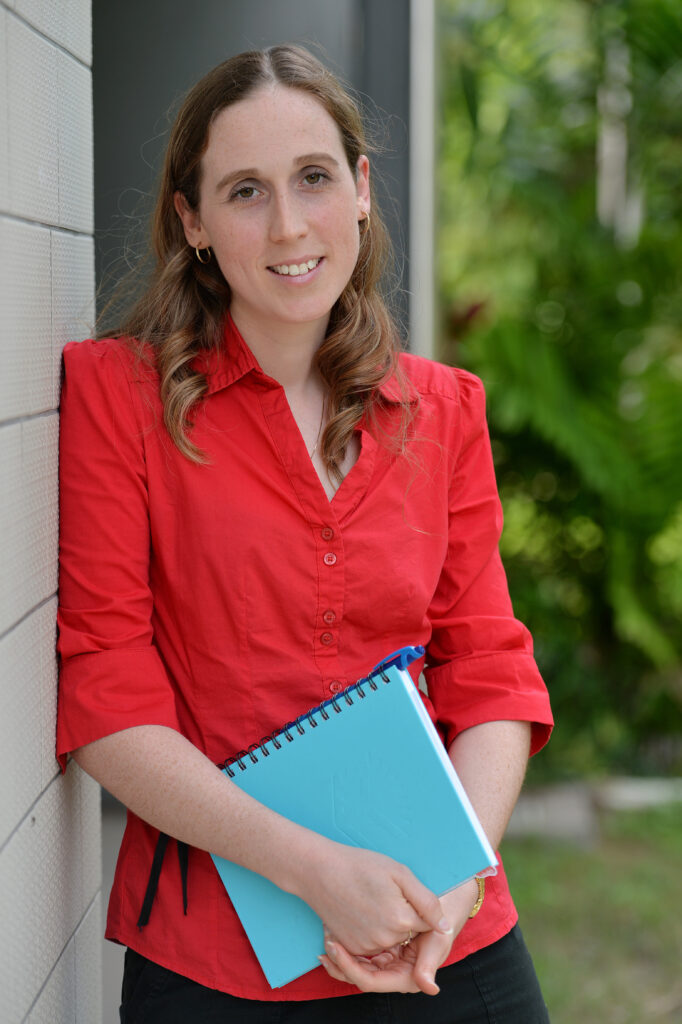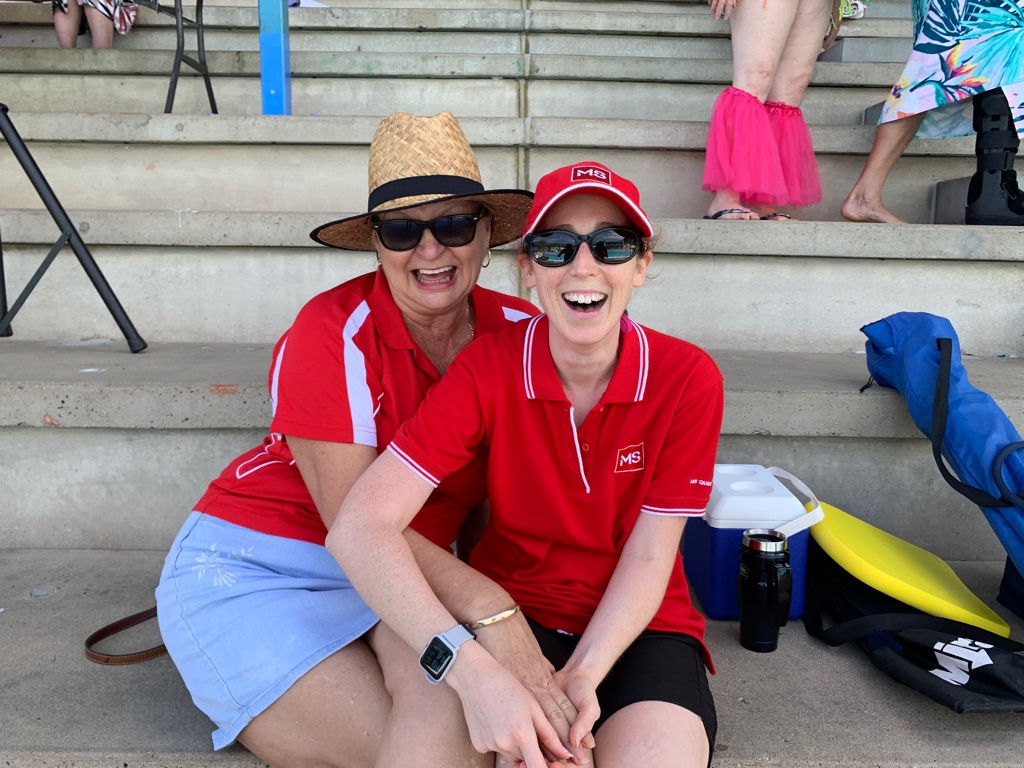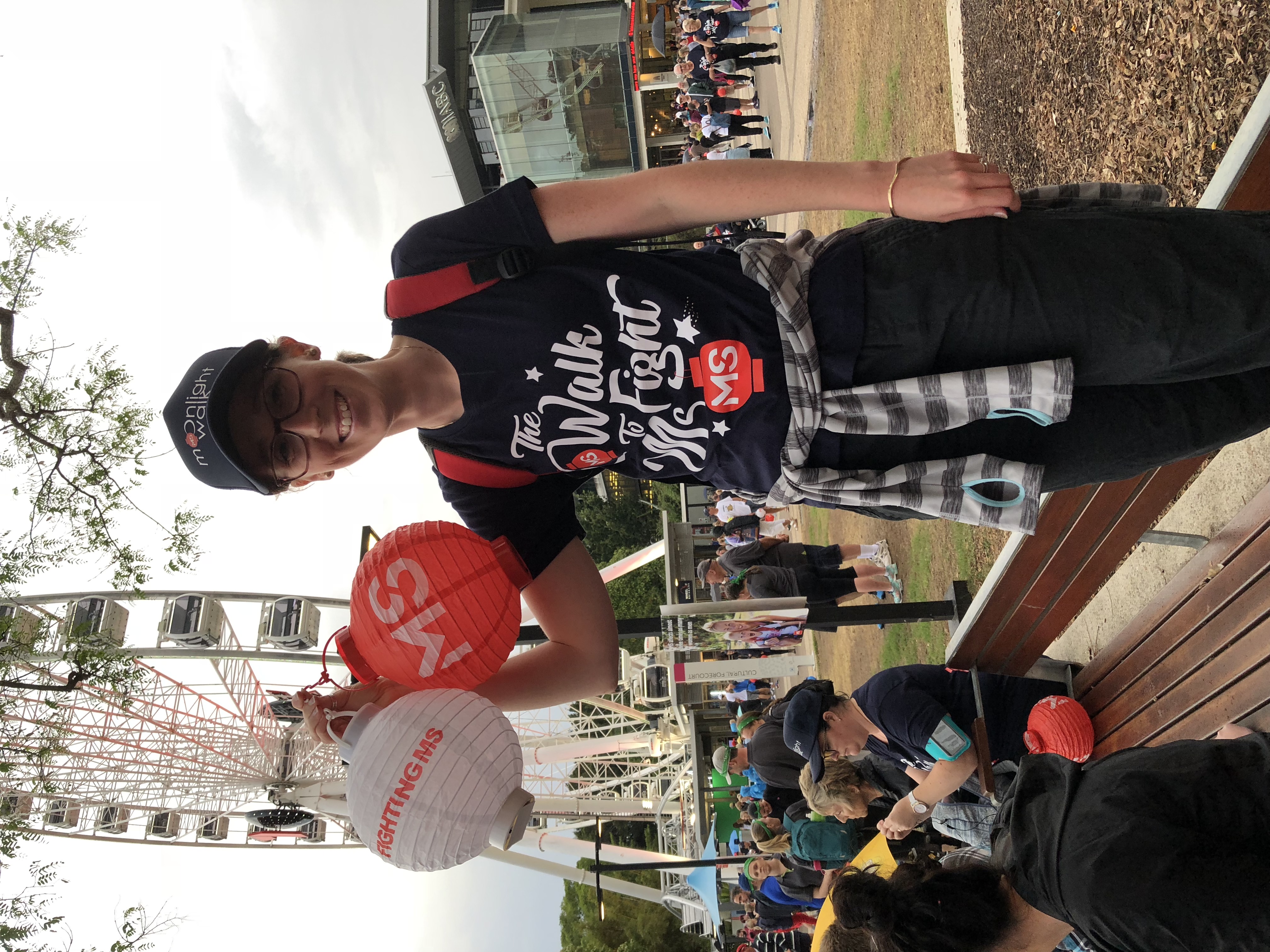March 8th is International Women’s Day – a global day celebrating the social, economic, cultural, and political achievements of women. This International Women’s Day the theme is #Choosetochallenge, with a focus to collectively call out gender bias and inequality and to actively work towards creating an equal future for a more inclusive world.
To celebrate International Women’s Day 2021, we interviewed Townsville-based MS Queensland Ambassador and support group convenor, Kate Casey on how she challenges stereotypes in the workplace and empowers women through the validation of education.
 ON ACCESSIBILITY CHALLENGES & CHRONIC ILLNESS
ON ACCESSIBILITY CHALLENGES & CHRONIC ILLNESS
After experiencing a pattern of strange symptoms such as vision problems, numbness and constant dizziness, Kate was diagnosed with MS in 2006 at 18 years old. Albeit the speed and process of a diagnosis has since progressed due to new medications, education and support services, Kate says that the immediate thought many newly diagnosed people have is often the same. “I was afraid that I was not going to be able to do all of the things that I had planned.”
However, through focusing on her university degree, having discussions about her condition with her future workplaces, and creating her own MS Support Group for young people in Townsville, Kate developed a new-found perspective for her life and her career. “I soon realised that the adventures and dreams I had been aspiring to were still achievable. It may not have been exactly the way I wanted to do them, but that didn’t mean they weren’t possible.” Fifteen years later and Kate’s attitude to her life has not waivered.
ON CAREER & CHANGE
Working as Technical Lead for a major IT project in an educational organisation, Kate’s job is incredibly diverse. From rolling out new functionality to spending an entire day troubleshooting a complex system problem across multiple technologies, Kate says her job is a bit of everything. “I do love it because every day is different and I’m constantly asking myself ‘which hat will I be wearing today?’ Those competing requirements can be quite challenging at times though!”
Navigating the workplace whilst living with MS is something that Kate says she has actively considered in her work strategy, and instead of trying to control it, she chooses to cater to it. “I want to challenge what people expect of a person in the workplace who lives with MS. The stereotypes of living with a wheelchair or a walker is not the reality for a large proportion of people with MS”, Kate says. Having a supportive team of colleagues who understand the effects of her “invisible” MS has been critical in keeping an inclusive work life, and Kate wants to emphasise that people who live with a chronic illness can have a very fulfilling career.
With Kate’s line of work also being a recognisably male-dominated industry, the underrepresentation of women in STEM (science, technology, engineering and mathematics) disciplines, and more profoundly in regional areas like Townsville, is something Kate is incredibly passionate about. “I want to make a difference by breaking down some of the stigmas that surround the industry, which I try to do as co-convenor of the ‘North Queensland Women in IT’ group. I want to promote to young women that a career in a STEM discipline, and especially in IT, is a viable, exciting and fulfilling option.”

ON FEMALE EMPOWERMENT
When asked about the women who have inspired her the most in life, Kate expresses that it is those who have come from ordinary circumstances but achieved extraordinary things. “I find women who have overcome great adversity by excelling in physical or intellectual endeavours to be very empowering. Theirs are such compelling and genuine stories.” When looking at the women in her own life, she praises the teachers and lecturers who encouraged her, taught her how to learn independently, and promoted critical and analytical thinking.
For Kate, the pursuit and promotion of women’s interests is something that we need to encourage more of. “It’s about empowering women to confidently make the decisions to improve their lives – be it financial, health, relationships. It’s about saying that their interests in life are valid and that they do not have to fit the criteria that society has placed upon them”. Kate believes that women should be considered for the assessment of their character and expertise, rather than based entirely on gender attributes. “I feel strongly that we should value women for who they are and the good decisions they make. An opportunity should be considered based on skills and experience, not because of gender.”

ON THE FUTURE OF WOMEN
Looking to the future and the biggest challenges that the future generation will face, Kate believes it will be keeping the conversation moving and present. “Yes, women are now living in an incredible time of change, but I think we need to work on how we frame that for future generations. How do we keep fighting for positive changes? How can we positively change expectations and opportunities so that women can continue to achieve their goals and lead fulfilling lives?”.
For women who have been recently diagnosed with MS or are generally dealing with the challenges of living with a disability, the fight can sometimes feel even harder. The advice Kate wants to offer on this is to “only keep information on board that is useful to you right now.” She mentions that being picky about who you choose to trust in giving you that information is also important and that you should never be afraid to ask questions and advocate for your own health. Continuing to help young people that have been newly diagnosed, Kate says that the work she does with MS Queensland and with her support group is one of the most fulfilling things for her. “It can be such a lonely and isolating time but having people who can help you with education, support and reassurance is critical.”
When the foundations of how you understand the world have suddenly been shaken, it is completely natural that you will have a lot of doubt, but if there is one thing that Kate wants us all to take away from the challenges of an MS diagnosis, it is this: “This is not the end of your story – there are so many amazing chapters still to come. Everybody goes on this journey differently and moves through the process at a different pace – how you feel right now is okay. You are strong enough to face the challenges ahead of you.”




